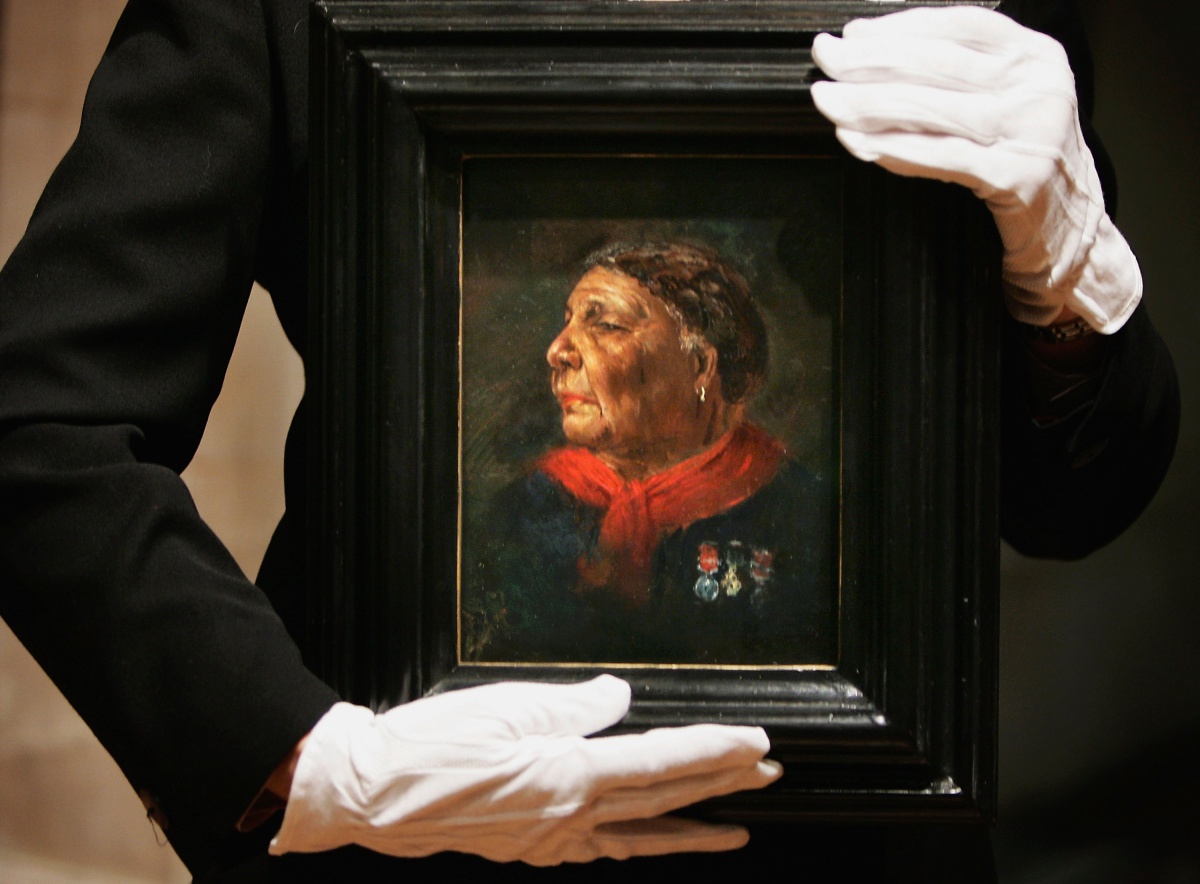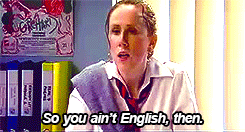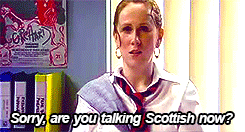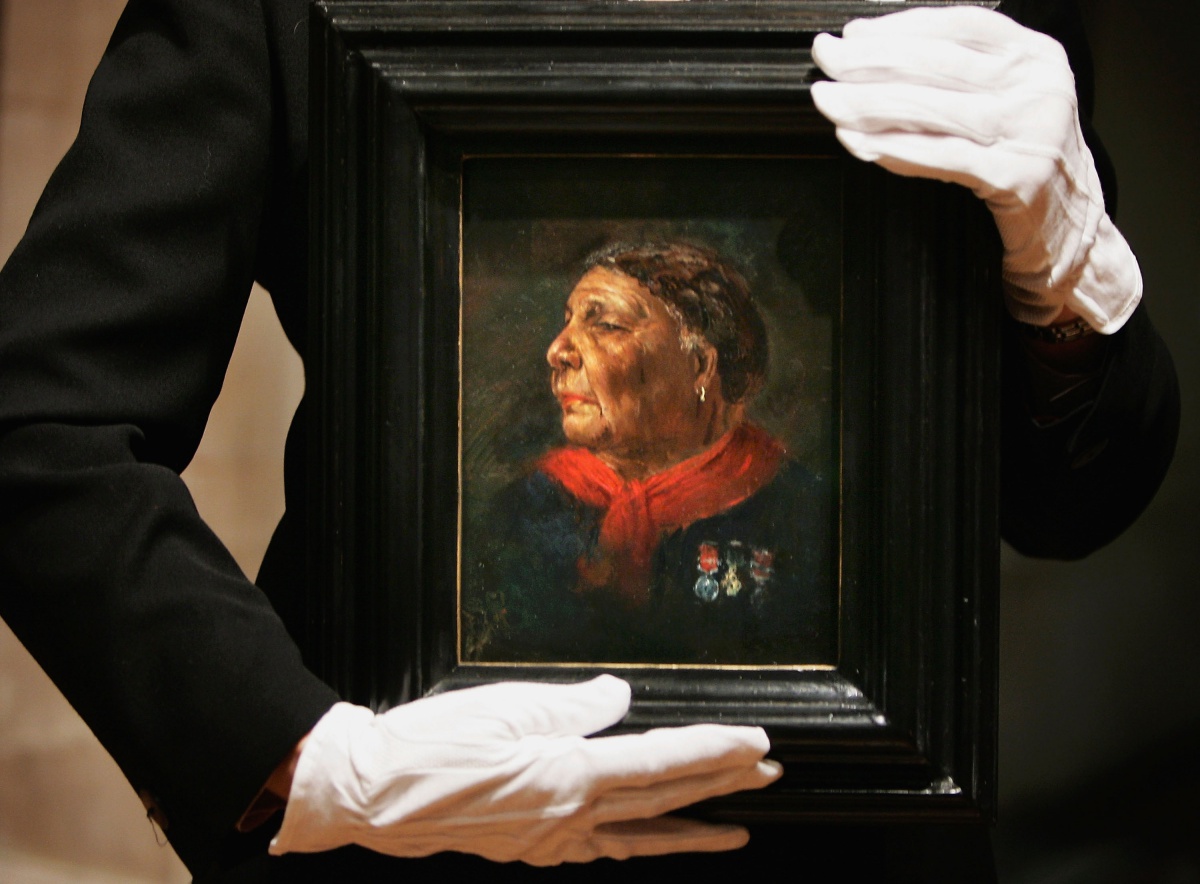Happy Black History Month! For each of the 28 days of February, we at The Mary Sue will have a post about a black woman you should know about—some you may have heard of, some a little bit more obscure, and some fictional who still deserve a lot of love.

Day Twenty: Mary Seacole
Born to a Scottish father and Jamaican mother, Mary Seacole grew up with pride in both her black heritage and a large amount of British nationalism. Her mother was a “doctress,” or obeah woman, who used traditional Caribbean and African herbal remedies in addition to running a boarding house at 7 East Street called Blundell Hall. While it was running, it was considered one of the best hotels in Kingston.
From 1821 to 1825, Seacole would periodically visit London, staying for a year at a time with relatives. In 1836, Mary married Edwin Horatio Seacole, and, during their trips to England, the Bahamas, Haiti, and Cuba, she expanded her knowledge of local medicines and herbal treatments.
After her husband’s and mother’s deaths in 1844, she gained further nursing experience during a cholera epidemic in Panama, and, after returning to Jamaica, she cared for yellow fever victims, many of whom were British soldiers. The cholera epidemic of 1850 killed roughly 32,000 Jamaicans. It was through this first-hand experience that Mary gained most of her medical experience.
In 1854, during the Crimean War, Seacole returned to England and approached the War Office, asking to be sent as an army nurse to the Crimea, where there were known to be poor medical facilities for wounded soldiers. She was refused.
Still, being the nationalist she was, she went to Crimea anyway with a relative’s help in 1855, setting up the British Hotel to sell food, supplies, and medicines to the troops. She assisted and brought a sense of home to the wounded at the military hospitals, and she was frequently at the front lines. Her firsthand experience with cholera and dysentery were especially prized. Because of this and the kindness she showed the injured, she was known as “Mother Seacole” to many of the soldiers.
After the war, she returned to England impoverished and in ill health. The press highlighted her predicament, and in July of 1857, a benefit festival was arranged to raise money for her. Thousands of people attended. Later that year, Seacole published her memoirs, ‘The Wonderful Adventures of Mrs Seacole in Many Lands.”
Seacole died on May 14, 1881, having helped and touched the lives of thousands of people. Despite centuries of obscurity, historians have since brought her back to her rightful place in history, so much so that in 2004 she took first place in the “100 Great Black Britons” poll in the United Kingdom.
Still, some fans of Florence Nightingale are upset that Mary Seacole is getting this new praise. Now, I don’t know why we have to have stan wars for dead nurses, but here it goes. As The Independent summarized:
“The opposition feeds into a wider argument that Seacole doesn’t deserve to be called a nurse or a British icon at all. In 2013, then-Education Minister Michael Gove made a U-turn on scrapping her from the national curriculum, prompted a string of articles painting Seacole as a mere tool of the multiculturalist agenda. ‘The black Florence Nightingale and the making of the PC myth: One historian explains how Mary Seacole’s story never stood up,’ as the Daily Mail put it.
Then there’s the argument that Seacole is a symbol of political correctness gone mad because the great black British icon isn’t, er, black.”
Additionally:
“Lynn McDonald, director of the collected works of Florence Nightingale and author of the book Mary Seacole: The Making of the Myth. She’s not opposed to a Seacole statue per se – just not on Florence’s turf. As she says, ‘St Thomas’ was the site for more than 100 years of the first nurse training school in the world, founded by Nightingale. Seacole never worked a day in her life in any hospital.”
Yeah, but you know where she did work? On the front lines of the Crimean war helping British soldiers. This reeks of try-hardness from people who feel like elevating one woman of color to the ranks of Florence Nightingale is “PC culture.” How is it “politically correct” to praise a Jamaican/Scottish woman who was so proud of being Scottish/British that she went to the front lines to help British people? It reeks of:

Even Natasha McEnroe, the director of the Florence Nightingale Museum, can’t understand the “drama,” and not to mention sexism, of the issue, saying: “No one ever asks me to compare the work of two (male) surgeons in the Crimean War, yet it is always assumed that two women feud.” Thankfully, those people are in the minority, but it is annoying that it needs to be discussed at all.
I was first introduced to the Jamaican-British nurse Mary Seacole through an excellent series of videos from the site “Extra Credit” which will be linked below. For an even more in-depth look at Mary Seacole, I would check them out.

Recommended Watching:
(Featured image: Bruno Vincent/Getty Images)
Want more stories like this? Become a subscriber and support the site!
—The Mary Sue has a strict comment policy that forbids, but is not limited to, personal insults toward anyone, hate speech, and trolling.—










Published: Feb 20, 2018 8:55 PM UTC